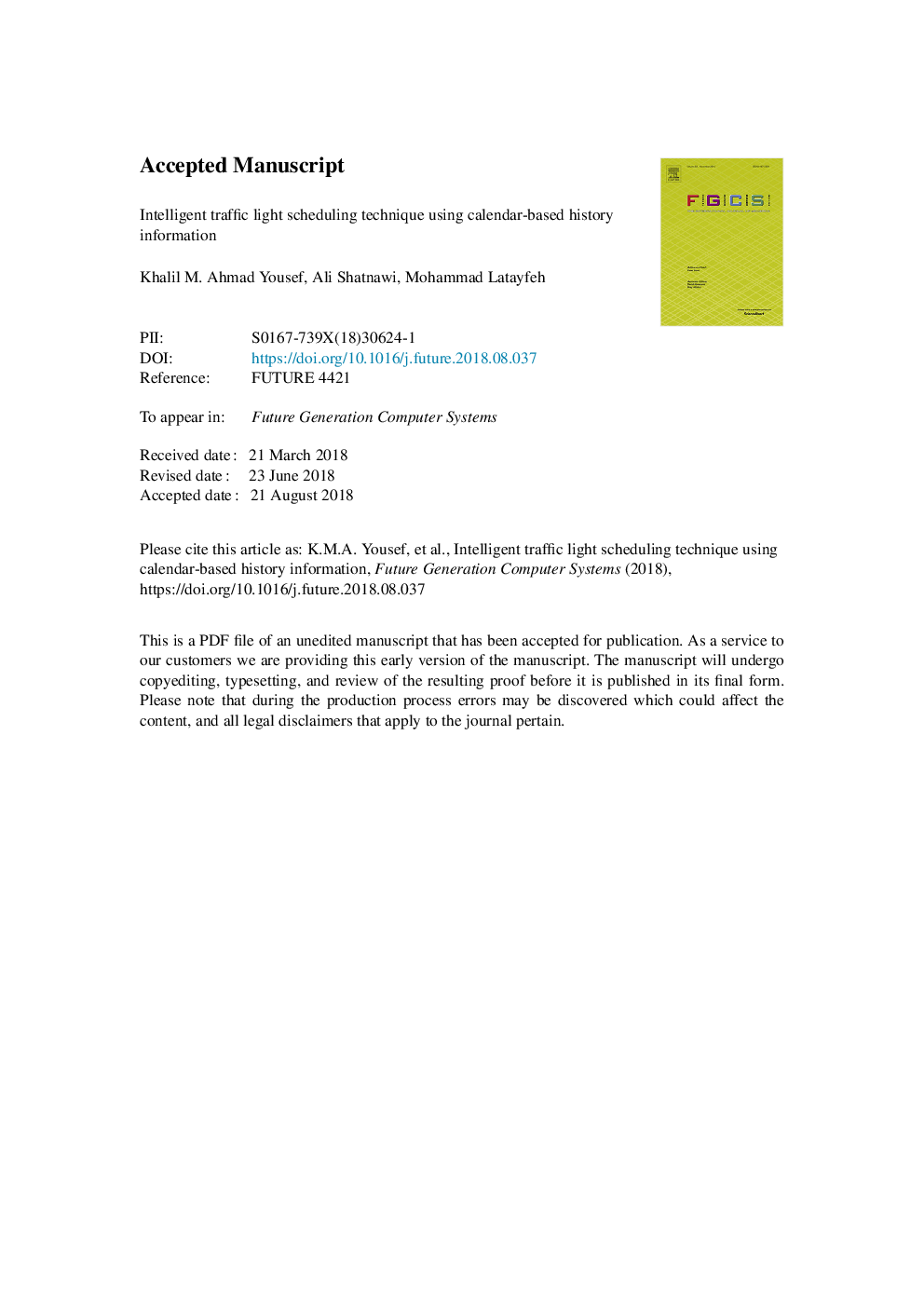| Article ID | Journal | Published Year | Pages | File Type |
|---|---|---|---|---|
| 9951434 | Future Generation Computer Systems | 2019 | 18 Pages |
Abstract
One of the most serious problems that are due to the vast increase in the number of vehicles, is the traffic congestion. The severe traffic congestion in modern large cities puts huge pressure on the decision makers to invest in planning and deploying solutions to this problem. Using a proper traffic management methodology could alleviate the traffic congestion problem and contribute to the reduction in traffic jams. Several algorithms for traffic management were presented in the literature. In this paper, we propose a new novel history-based traffic management algorithm that relies on the previous all-year traffic information to predict the traffic flow on congested streets of a crowded city. Thus, we refer to this proposed technique as a calendar-based traffic congestion management system. The main idea is to use the recorded traffic history information to compute the green/red times for each direction on a congested intersection with a traffic light controller. A robust heuristic is proposed to use the history information in predicting the future traffic load on each street leading to an intersection controlled by a traffic light. The proposed algorithm is implemented and tested using MATLAB and the well-known traffic simulator, SUMO. Simulation results show that the proposed algorithm optimizes the traffic flow up to 18% more than a standard traffic system. We also apply the proposed algorithm using a multi-intersection model composed of a mesh of 4x4 intersections, and compare the results with other traffic time management approaches, such as the History-Based Self-Organizing Traffic Lights, HB-SOTL. The proposed algorithm outperforms HB-SOTL by about 18%.
Related Topics
Physical Sciences and Engineering
Computer Science
Computational Theory and Mathematics
Authors
Khalil M. Ahmad Yousef, Ali Shatnawi, Mohammad Latayfeh,
